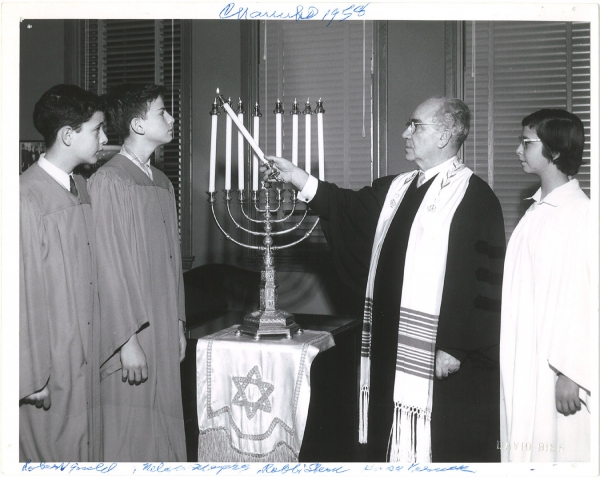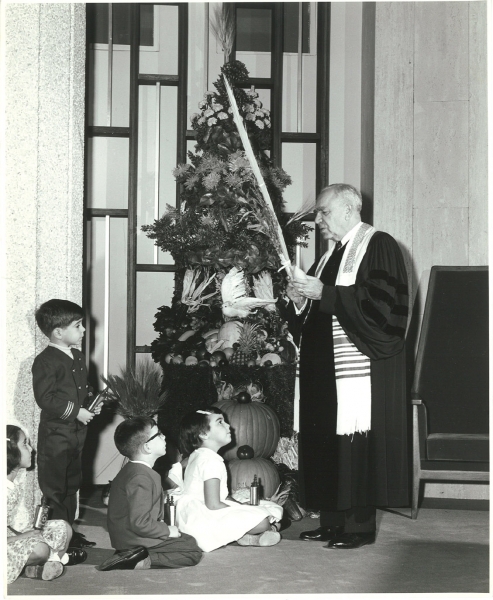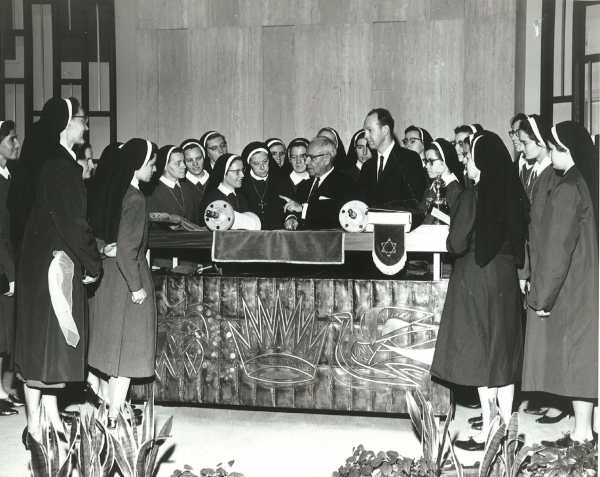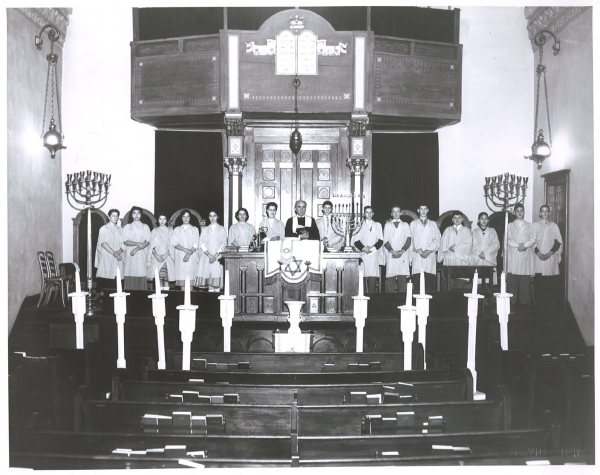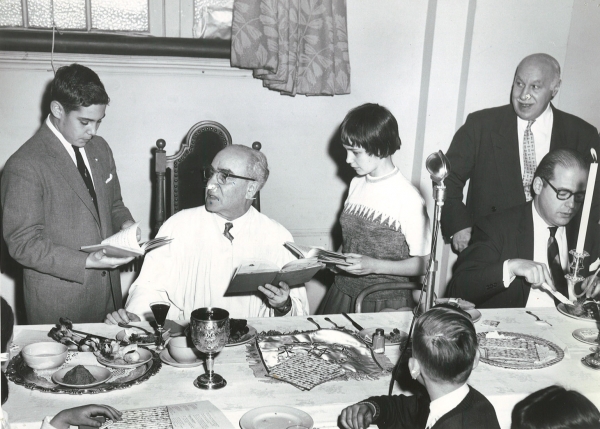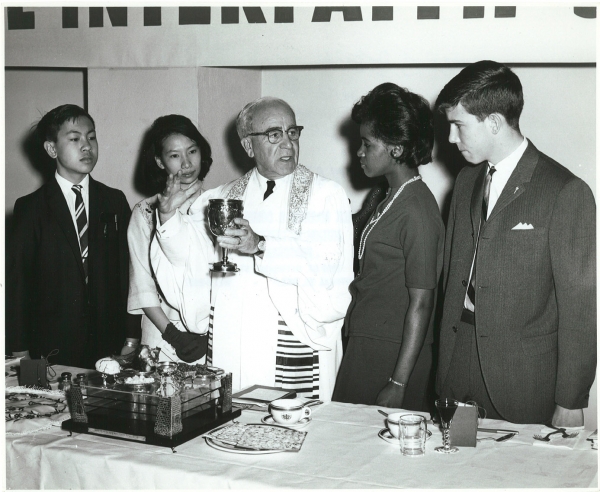Rabbi Harry Stern - Residence
1951 - 1984
3238 The Boulevard
Born in Eragoly, Lithuania, Harry Stern (1897-1984) was a pioneer of Reform Judaism in Canada who was also known as a fervent Zionist, a labour activist, an accomplished intellectual and a champion of interfaith dialogue. Following the pogroms of 1905, his family decided to flee Eastern Europe and emigrate to the United States, where they settled in Ohio. In 1927, Stern moved to Montreal to become rabbi of Temple Emanu-El, the city’s first Reform synagogue.
Soon after Stern arrived in Montreal, a major conflict broke out in the garment industry between workers and their employers, many of whom were members of his own congregation. At the time, more than 32% of the city’s garment workers were Jewish. Stern actively defended their interests in negotiations between the two parties. He rebuked the wealthy manufacturers for their treatment of their Downtowner brethren, even referring to them as “Jewish anti-semites”.
Stern was also devoted to improving Jewish-Christian relations. He established ties with the Catholic and Protestant clergy and, in 1942, founded the Institute for Clergy and Religious Educators, through which representatives of various faiths exchanged information about their respective religious traditions. In the 1950s and 1960s, his annual Fellowship Dinners were attended by prominent members of the Jewish and non-Jewish communities, including Mayor Jean Drapeau, Cardinal Paul-Émile Léger and even Martin Luther King, Jr. Stern was involved in these activities at a time when some Jews denied the legitimacy of Reform Judaism. The Rabbi Dr. Harry J. Stern Award was created in 1967 in his honour, to be conferred upon an individual noted for their significant contribution to interfaith and intercultural dialogue. After his death in 1984, Rabbi Stern’s name was given to a mountain in the Laurentians to commemorate his service to Quebec society.
Stern fought against anti-Semitism in the Catholic clergy and in Quebec society, and he publicly denounced Nazism and the atrocities committed against Jews in Europe during the Second World War. A fervent Zionist, he participated in 1944 in the creation of the Christian Council for Palestine, a group through which Zionists sought to raise awareness of their cause among the Christian clergy. Harry Stern was the Canadian delegate to the first World Jewish Congress in Geneva in 1936 and served on the Executive Board of the Central Conference of American Rabbis.
Compiled by Valérie Beauchemin, translated by Helge Dascher.
Links
Liens
"Stern, Rabbi Harry Joshua" - Canadian Jewish Heritage NetworkSources
Michael, Brown. « Zionism in the Pre-Statehood Years: The Canadian Response » in Ruth Klein and Frank Dimant (dir.), From Immigration to Integration: the Canadian Jewish Experience. North York : Institute for International Affairs, B'nai Brith Canada. 2001.
Clearter, Kenneth Irving et Harry Joshua Stern. Harry Joshua Stern: A Rabbi’s Journey. New York : Bloch Publishing Company. 1981.
Graham, Joseph. Naming the Laurentians. A History of Place Names « up north. »Montréal : Les Éditions Main Street Inc. 2005.
Medresh, Israël. Jewish Montreal of Yesterday trans. Vivian Felsen. Montreal : Véhicule Press, 2000.
Saperstein, Marc. « The Academic Study of Canadian Jewish Preachers. » Jewish History. 23.23 (2009): 107-116.
Tulchinsky, Gerald. Canada’s Jews: A People’s Journey Toronto : University of Toronto Press. 2008.
*Images courtesy of the Jewish Public Library Archives.


This project is funded in part by the Government of Canada.
Ce projet est financé en partie par le gouvernement du Canada.
Ce projet est financé en partie par le gouvernement du Canada.
This project is funded in part by the Government of Canada.
© 2011-2015 Museum of Jewish Montreal, All Rights Reserved.
Site by Air Code Design inc. ![]()
© 2011-2015 Musée du Montréal Juïf, Tous droits réservés. Site par Air Code Design inc. ![]()
